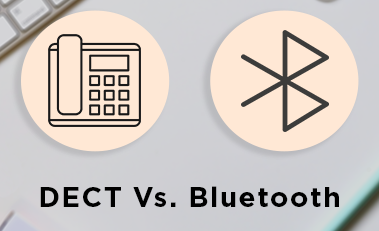VoIP Insights: The Keys to Overcoming Poor Call Quality
Today’s VoIP small business phone systems enjoy massive improvements over their predecessors. Once, VoIP faced challenges like unreliability and poor quality of service, or QoS. Nowadays, these phones can deliver impeccably clear voice communication, seamless video conferencing and contact-aware supplementary features.
Of course, not every implementation is flawless. Here are some of the most common reasons you might be experiencing subpar call quality.
Poor Signal Translation
Your phone’s receiver and speakers are designed to process signals whose parameters fall within strict constraints. The same goes for the adapters that transform analog voice data into digital packets and vice versa. Errors or mismatches at any of these critical junctures can cause noticeable signal quality issues.
For instance, signals that get overly amplified or attenuated might sound varyingly loud, tinny, muffled or soft. These kinds of distortion can make it hard to understand what your conversation partners are saying.
Software Bugs
Digital audio signals pass through numerous software codecs designed to encode and decode them as efficiently as possible. Although these processes ideally minimize the amount of data required to transmit signals and implement error-checking routines, they depend on proper application. Failing to use the correct codecs and processing tools for your equipment may produce strange hums, annoying buzzes and other forms of spurious signals that make VoIP calling far less pleasant.
It is possible to correct some bugs by updating your device firmware and VoIP software solutions. Others may require investigations into potentially incompatible or damaged equipment. Having an experienced VoIP distributor usually comes in handy.
Poor Network Management
Many of the same IT problems that hinder general data QoS can impact VoIP setups. If your broadband connection’s bandwidth is too low or your router is behind the times, you will usually experience significant call quality deficiencies.
In some cases, you can overcome these issues by replacing your hardware with something more modern. In other situations, you may have to delve into the nuances of your network’s configuration and make significant changes. Each situation is unique, so it pays to have professional assistance.
Correct the Problem With Help From 888VoIP
These are just some of the issues that might impact VoIP call quality. Whether you want to conquer weather-induced static or eliminate device interference, you need to work with someone who can help you avoid the pitfalls.
Reap the rewards of seamless digital communication systems. To find out what your next move should be, reach out to the 888VoIP specialists.


